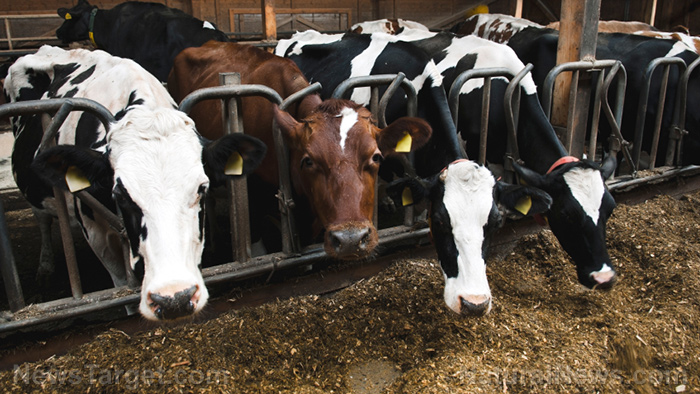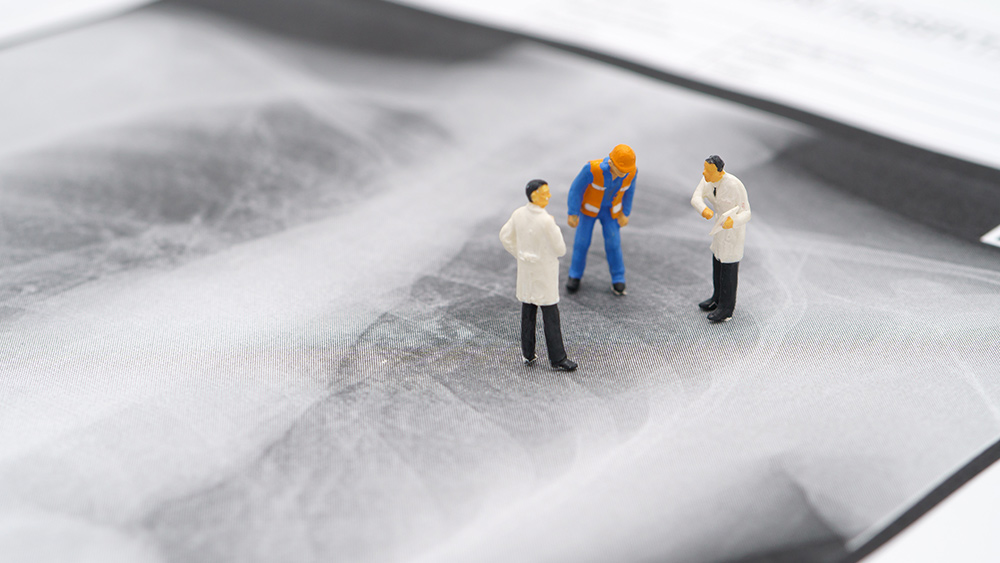GERD / acid reflux diet: What to eat and what to avoid
08/26/2020 / By Divina Ramirez

Burning abdominal discomfort, chest pain and bloating after eating are all tell-tale signs of acid reflux. Getting a case of heartburn from time to time isn’t unusual, but it might be a sign of a more serious problem if it persists in the long run.
Ekta Gupta, a gastroenterologist at Johns Hopkins Medicine, states that diet has a major role in controlling the occurrence of acid reflux. In fact, diet is one of the go-to therapies for people that suffer from gastroesophageal reflux disease (GERD), the chronic form of acid reflux, said Gupta.
This is because certain foods tend to encourage GERD flare-ups, according to gastrointestinal surgeon and specialist Leena Khaitan. On the bright side, this means that eating certain foods can soothe flare-ups or keep them from occurring altogether, added Khaitan.
Foods to include in a GERD diet
To minimize the occurrence of acid reflux or GERD flare-ups, it’s important to eat a balanced diet that contains plant-based foods as much as possible, said Khaitan. Here are some of the best foods to include in a GERD or acid reflux diet:
- Fruits – The best fruits for a GERD diet are those that can help offset strong stomach acid. These include bananas, melons and apples.
- High-fiber foods – Fibrous foods can sustain feelings of fullness for longer periods and discourage eating too much food in one sitting. These include oatmeal, hummus, quinoa, potatoes, carrots, beets, broccoli, green beans and asparagus.
- Fermented foods – Good gut bacteria are integral for optimal gut health, so seek out foods rich in probiotics. Yogurt, sauerkraut, kimchi and kombucha are some good examples.
- Lean meat – Eating meat shouldn’t be a problem as long as it’s lean. Some of the healthiest meats include grass-fed beef, chicken breast and fish meat.
- Broth-based soups – Instead of cream or tomato-based soups, opt for broth-based ones made using lean ingredients.
Bad foods that can trigger acid reflux
In general, foods that can trigger heartburn are those that cause the esophageal sphincter to relax, said Gupta. In effect, this lets the food sit in the stomach for longer periods, stalling digestion. Some of the most common culprits include:
- Fried foods – Onion rings, french fries, fried chicken and bacon are all rich in fat. High-fat foods sit in the stomach for longer periods, stimulating the stomach to make more acid and further irritating the intestine.
- Hot foods – Chili peppers and dishes that use hot sauce just further irritate the intestine and esophagus.
- Tomatoes and tomato-based foods – Tomatoes are acidic.
- Citrus fruits – The high acid content of citrus fruits relaxes the esophageal sphincter.
- Caffeine – Coffee and tea can exacerbate acid reflux.
- Carbonated drinks – Bubbles expand in the stomach, creating more pressure and pain.
- Chocolate – Chocolate has at least three bad ingredients: caffeine, fat and cocoa.
- Garlic and onion – These foods can irritate and inflame the lining of the esophagus.
Tips for suppressing acid reflux or GERD flare-ups
Besides eating the right foods and cutting back on the bad ones, healthcare professionals might recommend making certain changes that could further minimize the occurrence of acid reflux or GERD flare-ups. Common recommendations include:
- Eat smaller meals – Consuming less food on a regular basis can reduce pressure in the stomach.
- Don’t rush eating – Rushing through meals can irritate the esophagus and stomach.
- Maintain an upright position for at least three hours after eating – Reclining after a meal makes it easier for stomach contents to enter the esophagus.
- Don’t snack often – Eating more if the stomach is still full increases stomach pressure.
- Steer clear of tight-fitting clothes – Tight-fitting clothes can also put pressure on the stomach and trigger acid reflux.
- Quit smoking – Nicotine from cigarettes relaxes the esophageal sphincter and makes it easier for stomach juices to flood back up into the esophagus.
Experts recommend a diet-first approach to treating GERD, but it’s important to remember that there is no one-size-fits-all GERD diet. It should be tailored according to a person’s taste preferences and focused on foods that promote good gut health, such as those rich in fiber and probiotics.
For people unable to eliminate some of the bad foods from their diet, moderation should be practiced, said Gupta. That being said, it’s best to steer clear of problem foods late at night to keep them from coming up the esophagus during sleep. (Related: Natural remedies for acid reflux.)
Read more articles about managing acid reflux and GERD flare-ups at Healing.news.
Sources include:
Tagged Under: #nutrition, acid reflux, alternative medicine, diet, digestion, disease treatments, food cures, food is medicine, functional food, GERD diet, gut health, natural cures, natural ingredients, natural medicine, nutrients, organics, prevention, remedies




















